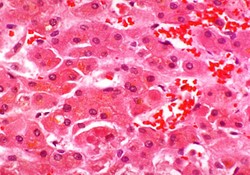Individuals with advanced alcoholic hepatitis may progress to failure of the liver, and the only solution in some cases is transplantation. As with any organ transplant, there is a complex procedure to arrange for it. The most common reason for liver transplantation in the United States is cirrhosis, and that medical condition may result from chronic hepatitis C infection or a long history of drinking too much [1, 2].
Since there is a waiting list to perform the procedure, some have questioned whether a person who consumes too much alcohol should have the privilege to undergo liver transplantation. Many communities across the globe believe that a person must take responsibility for his or her medical condition. Hence, the controversy over this matter has both social and medical elements [1].




 The Reality of Aspirinon 05/24/2021
The Reality of Aspirinon 05/24/2021
 An Old Microbeon 03/31/2021
An Old Microbeon 03/31/2021
 Coronavirus and Mental Illnesson 02/14/2021
Coronavirus and Mental Illnesson 02/14/2021
 Acute Ischemic Strokeon 12/25/2020
Acute Ischemic Strokeon 12/25/2020


Comments